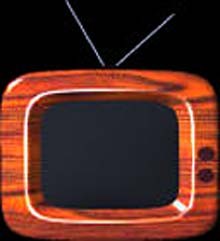The military-industrial-media complex
What media owners prefer is to increase their control over the media markets, and thus, their profits. When Bagdikian wrote the first edition of his book in 1983, 50 corporations controlled the majority of what Americans saw, read, and heard. Now, there are only five, the Big Media.
If media power is political power, then the converse is also true: Political power is media power. Broadcasters depend on the regulation of the Federal Communications Commission (FCC) to protect their exclusive control over a public resource: the airwaves. "Through its policy decisions - especially, though not only, decisions involving media regulation - the U.S. government can reward media companies that please it, punish those that don't," wrote Princeton University economist Paul Krugman in a column for The New York Times. "This gives private networks an incentive to curry favor with those in power."
And curry favor they have. Steve Rendall, senior analyst at Fairness & Accuracy In Reporting (FAIR), studied Big Media's coverage of the invasion of Iraq and found that it "fell down on the job." Before the invasion, Big Media did not provide a broad debate, accurate information, historical context, or ask tough questions of U.S. officials. Rendall concluded that they acted as "little more than cheerleaders for the war with token dissent. It is hard to imagine a more friendly media environment for war."
While Big Media provided favorable coverage to the Bush Administration, they were also lobbying the administration for favorable FCC rule changes that will expand their control over the media. This should have been a conflict of interest, but, under the Bush Administration, it is a confluence of interests.
"`M`edia giants stood to make untold billions if the FCC safeguards were eliminated," says Jeffrey Chester, executive director at the Center for Digital Democracy. "There's no question that the unspoken quid pro quo to the networks was you wave the flag and we'll waive the rules."
Reed Hundt, a former chairman of the FCC, concurrs, "If Dwight Eisenhower were alive today, he'd be warning us about the dangers of the military-industry-media complex."
This is no secret to insiders. In the latest issue of the American Conservative magazine, Charles Goyette, a conservative radio talk show host on a Clear Channel station in Phoenix, wrote that at Clear Channel, there is an "oil-and-water incompatibility of these two seemingly disconnected phrases: 'Criticizing Bush' and 'Clear Channel.'"
Goyette said he lost his prime-time show because he opposed the Iraq war on the "basis of long-held conservative principles," adding, "Clear Channel stations were unusually visible during the war with what corporate flacks now call 'pro-troop rallies.' In tone and substance, they were virtually indistinguishable from pro-Bush rallies. I'm sure the administration, which faced a host of regulatory issues affecting Clear Channel, was not displeased."
When a journalist asked Barry Diller, the former president of Rupert Murdoch's Fox network, if the "pro-Bush cheering from the Murdoch-owned media" was designed to influence the FCC's removal of limits on media ownership, he said, "Absolutely, it's always been part of the agenda."
| "Although there are many more channels, they are controlled by the same large companies. This means that there is not a real increase in diversity but gives new power and influence to the big five corporations." Author Ben Bagdikian |
The first step was the Reagan Administration's elimination of the Fairness Doctrine in 1987, which required broadcasters to give equal time to opposing viewpoints on a particular issue. The second element of the strategy was to "let the bigger fish eat more of the smaller fish," as Krugman put it. When the Republicans took control of Congress in 1994, then-Speaker of the House Newt Gingrich pushed the Telecommunications Act of 1996 through Congress. The law fundamentally rewrote media regulation while removing consumer and diversity protections. To the frustration of Big Media, President Clinton sided with the small media owners and local TV affiliates to block the significant elimination of ownership limits, with the notable exception of radio.
Seven years later, without the Fairness Doctrine and minimal national ownership caps, San Antonio-based Clear Channel operates more than 1,200 radio stations - almost a 1,000 more than its nearest competitor - and broadcasts its trademark right-wing talk radio programming without regard for presenting opposing viewpoints. In fact, the conversion of radio into a right-wing propaganda machine after the loosening of ownership caps serves as a dire warning about what could befall other broadcast media under the FCC's current pro-concentration policies.
Big Media has expanded so quickly that again they have encountered the constraints of the ownership limits. In fact, several companies have exceeded those limits. The Tribune Company violated the rule against owning a newspaper and a television station in the same market. Viacom/CBS violated the rule against owning television stations with a combined reach of more than 35 percent of the national audience. Murdoch's News Corp/Fox violated both. But the Bush-appointed FCC chairman, Michael Powell granted these companies waivers rather than force them to sell some of their holdings.
Powell has a pattern of rewarding Bush Administration media allies - and to Murdoch, most generously. As one of his first acts as chairman, Powell waived the cross-ownership ban, allowing Murdoch's News Corp. to own a newspaper and television station in the same market. Last month, the FCC permitted Murdoch to purchase the largest of two existing direct-broadcast satellite services, DirecTV. This gives Murdoch a "triple play" in TV; he now owns broadcasting, cable, and satellite platforms.
According to the January 19 Business Week, this "potent mix" will give Murdoch's empire "unprecedented reach," and make him a "more fearsome gatekeeper, with increased say about what gets into people's livng rooms and on what terms."
Democracy relies on an informed citizenry, which, according to former U.S. Supreme Court Justice Hugo Black, means the media must provide "the widest possible dissemination of information from diverse and antagonistic sources." Bagdikian warned that "although there are many more channels, they are controlled by the same large companies. This means that there is not a real increase in diversity but gives new power and influence to the big five corporations." •
















